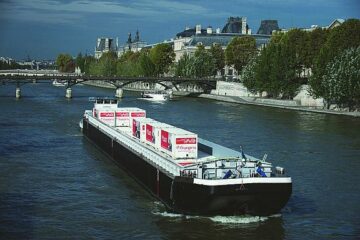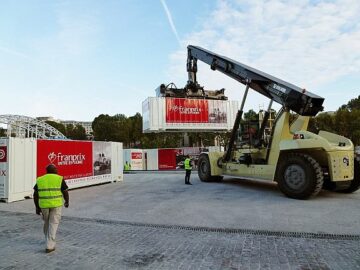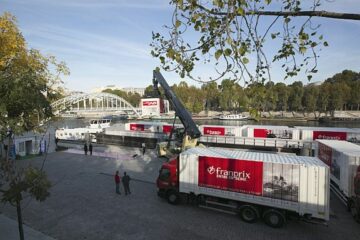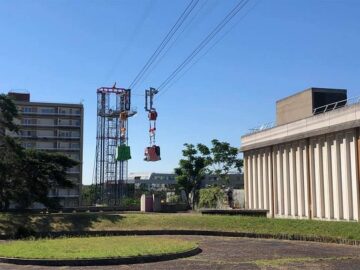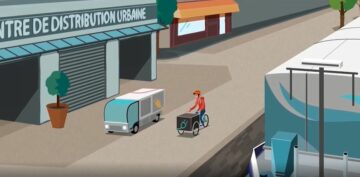Challenge(s)
How can waterways be used as a logistics tool?
Good practice
Use waterways as a logistical tool for urban freight distribution
The growth of cities near port areas leads to a rise in demand for goods and heavier usage of roadways. Considering the typical congestion problems that affect port cities' transport networks, the option of using the waterways for goods distribution, if possible, is becoming more attractive. However, for this alternative to become feasible, all stakeholders must agree on these new logistics strategies. In Paris, a series of projects helps to free the inner city from port truck traffic, reducing congestion and CO2 emissions.
This good practice also includes objective 3.2 (Developing soft solutions for proximity-based urban logistics) of the AIVP's 2030 Agenda.
Case study
Since September 2012, the food products destined for Franprix stores located in the heart of Paris have been distributed via the Seine. The goods are first transported in containers between the port of Bonneuil-sur-Marne and the port of Bourdonnais in the centre of Paris, before being delivered by truck on the last leg of their itinerary to the retail stores, all of which are located within a radius of 4 km. Since 2015, a second warehouse located at Bonneuil has been used, allowing an increase to 42 containers transported by the River Seine per day and to 300 stores being supplied. Goods are unloaded every morning at the Bourdonnais quay at the foot of the Eiffel Tower and delivered directly by small gas-powered trucks to the Franprix stores in the Paris region. In the long term, the objective is to transport 48 containers per day, equivalent to a savings of 450,000 km/year and a 37% reduction in CO² emissions. This initiative also enables the development of quays within urban areas and will make port activities more acceptable to the Parisian population. After ten years, the company estimates they avoided using 36,000 trucks for transportation and saved 250 tonnes of CO2 annually.
River transportation is an excellent alternative for urban and last-mile logistics. In Paris, several pioneering projects are using the Seine River as a logistics channel. The project Fludis proposes a system combining 38-meter-long electric barges as floating warehouses with electric bicycles, capable of distributing 3000 packages per day and potentially saving up to 110 tons of CO2 per year. The other two solutions in Paris using barges are the Green Deliriver, which uses alternative fuels, like biogas, and combines different electric vehicles, and Green Switch Meridian, which has an urban logistics hub connecting river and truck freight. With a different approach, in 2019, Citallios used cable cars to transport 260,000 tons of dirt from a construction site in Clichy. This original system transports skips carrying 20 tons of land over 400m at 35m above ground, resulting in 1,500 tonnes of waste per day, connecting the site with the barges. This solution saved 10,000 trucks per month and 35% of CO2 emissions. These examples show the potential of rivers for sustainable mobility.
Additional information
Video: https://europenews.xpo.com/fr/1343/la-solution-xpo-logistics-pour-les-magasins-franprix/
franprix (French)
https://fludis.eu/discover-fludis/?lang=en
https://www.green-switch-meridian.com/menu (French)
https://www.segulatechnologies.com/en/innovation_project/green-deliriver-logistique-fluviale/
A Clichy-la-Garenne , un téléphérique urbain pour transporter… des gravats | L’Écho Île-de-France (French)

